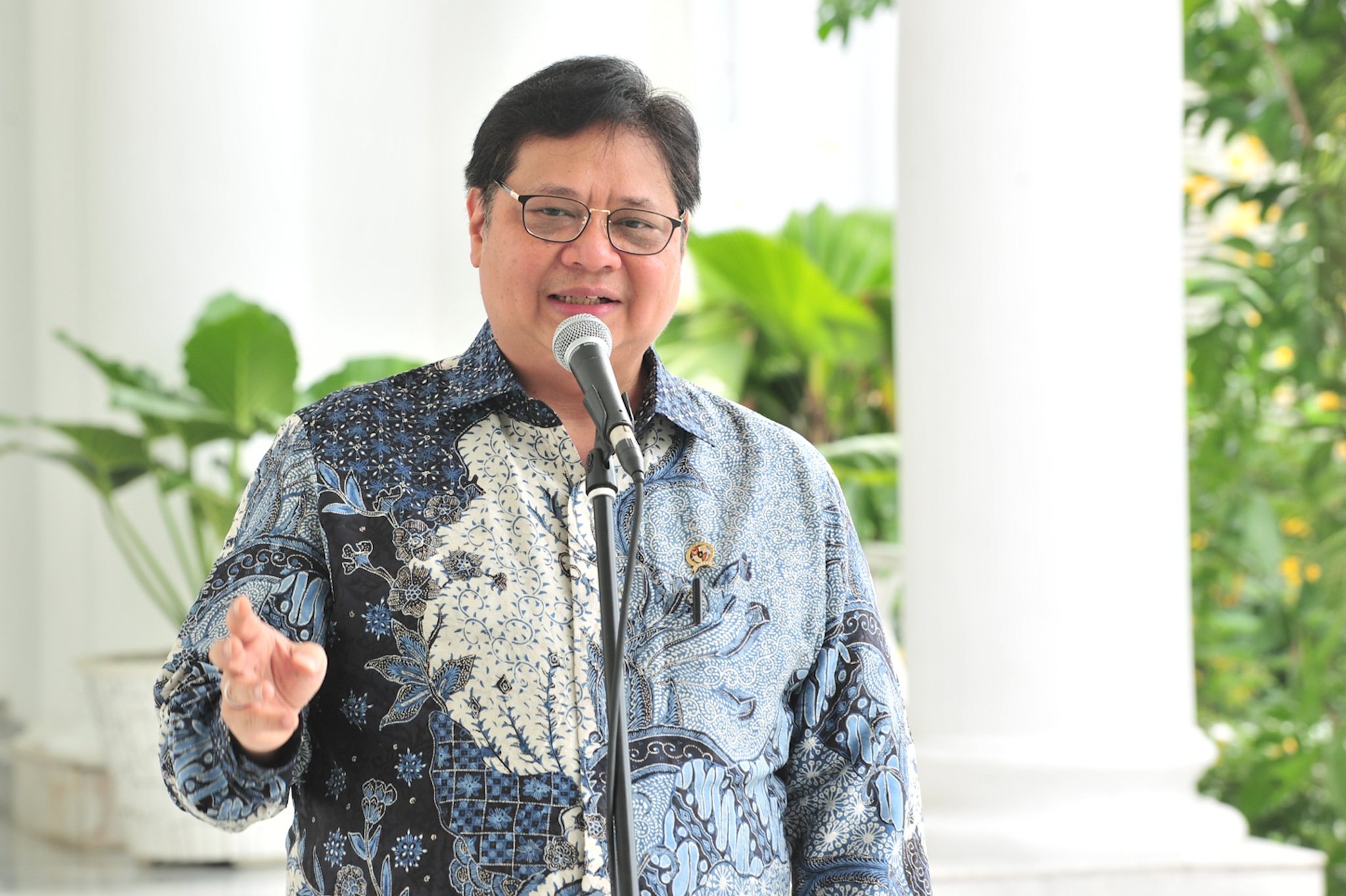Regulation on Investment Management Institution Aims to Overcome Development Financing Challenges

Coordinating Minister for Economic Affairs Airlangga Hartarto (Photo by: Documentation of Cabinet Secretariat PR)
The Government has announced the issuance of Government Regulation Number 73 of 2020 (PP 73/2020) on the Initial Capital of Investment Management Institutions and Government Regulation Number 74 of 2020 (PP 74/2020) on Investment Management Institutions as implementing regulations for the Job Creation Law.
According to Coordinating Minister for Economic Affairs Airlangga Hartarto, the regulations aim to respond to structural challenges from the investment sector as domestic financing capacity is insufficient to finance economic development.
These two PPs aim to answer structural challenges from the investment side where domestic financing capacity is not sufficient to finance future economic development, he said, adding that the Government also needs strategic partners that are legally and institutionally strong to attract investment from global investors.
“The Investment Management Institution (LPI) will manage foreign and domestic investment funds as an alternative source of financing as well as reduce the country’s dependence on short-term funds,” the Minister said, Wednesday (16/12).
The LPI will manage investment and increase as well as optimize the investment value that is managed in the long term in order to support sustainable development, he said.
The regulations, Airlangga continued, are expected to help optimize the value of government investment by increasing alternative financing through direct investment and encouraging the improvement of the investment climate.
“The alternative financing provided can also be used to push funding for infrastructure projects, in line with policy directions,” he said.
The LPI is an Indonesian legal entity that is fully owned by the Indonesian Government. Through PP 73/2020, the LPI has received initial capital support worth Rp15 trillion or around US$1 billion.
“The Government will provide support in the form of initial capital participation from the 2020 State Budget in accordance with applicable regulations,” Airlangga said.
The LPI capital will gradually be carried out until it reaches Rp75 trillion or US$5 billion in 2021, as stated in PP 74/2020.
The capital support is expected to be able to assist the LPI in carrying out its functions and duties in accordance with six authorities, as follows:
- Conducting funds placement in financial instruments;
- Managing assets for investment;
- Cooperating with relevant stakeholders, including trust fund entities;
- Determining potential investment partners;
- Providing and receiving loans; and
- Administering assets.
“LPI is also expected to have flexibility in investing, professional and independent management, and be able to capture appetite investors,” Airlangga stated.
The LPI structure is two-tier system filled with a combination of government and professionals. The Board of Supervisors consists of Minister of Finance, Minister of SOEs, and three people from the professional element, who will provide an accountability report to the President.
Meanwhile, the Board of Directors consist five people from the professional element who will provide the Annual Report and Accountability Report to the Board of Supervisors.
Through a strong institutional and management structure, the LPI will work closely with investor partners in the commercial sector, which is important for development and job creation.
For the record, at the end of November this year, the United States International Development Finance Corporation (IDFC) has signed a letter of interest to invest US$2 billion in the LPI.
The Japan Bank for International Cooperation (JBIC) has also committed to investing US$4 billion. (PR of Coordinating Ministry for Economic Affairs/UN) (RIF/MUR)








